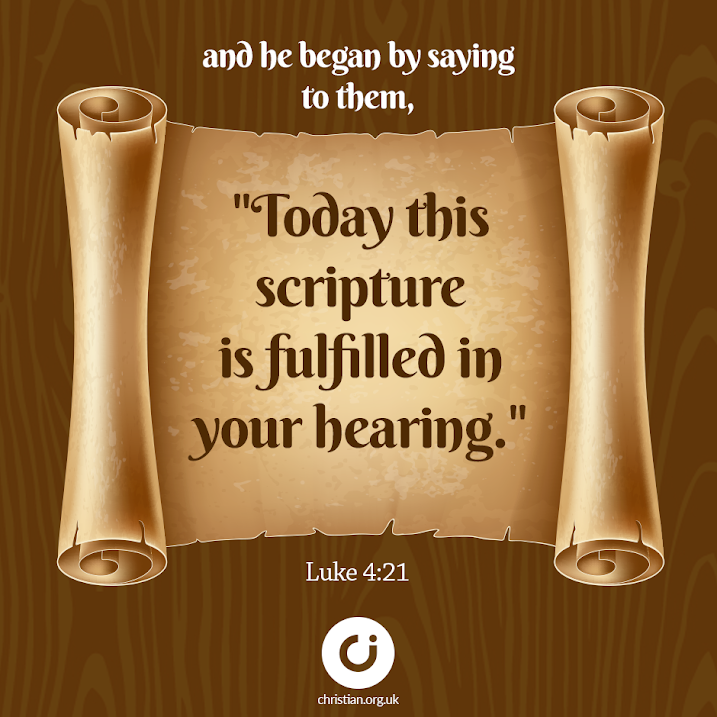Daily Gospel Reflection - Monday of the Twenty-second Week in Ordinary Time
Daily Gospel Reflection - Monday of the Twenty-second Week in Ordinary Time
August 30, 2021
Monday of the Twenty-second Week in Ordinary Time
Gospel: Lk 4:16-30
Jesus came to Nazareth, where he had grown up,
and went according to his custom
into the synagogue on the sabbath day.
He stood up to read and was handed a scroll of the prophet Isaiah.
He unrolled the scroll and found the passage where it was written:
The Spirit of the Lord is upon me,
because he has anointed me
to bring glad tidings to the poor.
He has sent me to proclaim liberty to captives
and recovery of sight to the blind,
to let the oppressed go free,
and to proclaim a year acceptable to the Lord.
Rolling up the scroll,
he handed it back to the attendant and sat down,
and the eyes of all in the synagogue looked intently at him.
He said to them,
“Today this Scripture passage is fulfilled in your hearing.”
And all spoke highly of him
and were amazed at the gracious words that came from his mouth.
They also asked, “Is this not the son of Joseph?”
He said to them, “Surely you will quote me this proverb,
‘Physician, cure yourself,’ and say, ‘Do here in your native place
the things that we heard were done in Capernaum.’”
And he said,
“Amen, I say to you, no prophet is accepted in his own native place.
Indeed, I tell you,
there were many widows in Israel in the days of Elijah
when the sky was closed for three and a half years
and a severe famine spread over the entire land.
It was to none of these that Elijah was sent,
but only to a widow in Zarephath in the land of Sidon.
Again, there were many lepers in Israel
during the time of Elisha the prophet;
yet not one of them was cleansed, but only Naaman the Syrian.”
When the people in the synagogue heard this,
they were all filled with fury.
They rose up, drove him out of the town,
and led him to the brow of the hill
on which their town had been built, to hurl him down headlong.
But he passed through the midst of them and went away.
Source: United States Conference of Catholic Bishops
Bishop Robert Barron
Friends, in today’s Gospel, Jesus begins his Galilean ministry with a prophetic message in the synagogue at Nazareth: "The Spirit of the Lord is upon me, because he has anointed me to bring glad tidings to the poor. He has sent me to proclaim liberty to captives and recovery of sight to the blind, to let the oppressed go free, and to proclaim a year acceptable to the Lord."
The moment has arrived, the privileged time, the kairos; something that human beings have been longing for and striving after and hoping to see has appeared. In Jesus of Nazareth, the divine and human have come together in a salvific way, and this reconciliation is the long-awaited kingdom of God.
One motif in Scripture is persistent: the passionate desire for deliverance, the cry of the heart toward the God from whom the people feel alienated. What Jesus announces in his first sermon, and what he demonstrates throughout his life and ministry, is that this wild desire of his ancestors, this hope against hope, this intimate union of God and humanity, is an accomplished fact, something that can be seen and heard and touched.














COMMENTS